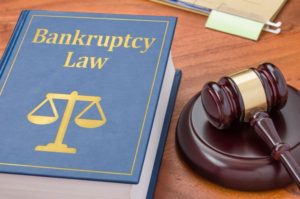Bankruptcy fraud is typically a white-collar crime. Often, fraud in the context of a bankruptcy case is committed in tandem with another crime, such as identity theft, mortgage fraud, and money laundering. Bankruptcy fraud takes the following four most common forms:
- A debtor conceals assets to avoid their loss or forfeiture.
- An individual intentionally files false or incomplete forms.
- An individual files multiple times.
- An individual bribes a court-appointed trustee.
Almost 70%, or nearly ¾, of all bankruptcy fraud, involves the concealment of assets. This prevents assets from being listed by a debtor, which prevents creditors from thereby liquidating them. If the debtor omits revealing certain assets, it can fraudulently retain them while avoiding responsibility for an unpaid, outstanding debt.
Debtors who conceal assets often do so by transferring them to family members, friends, or acquaintances so they may remain undiscovered. Fraudulent concealment makes loans more expensive because it raises the risk and costs associated with lending, which creditors pass on to borrowers.
Bankruptcy debtors sign and attest to the fact that anything they submit to the U.S. Trustee and U.S. Bankruptcy Court is true and correct, under penalty of perjury. Including false information on a bankruptcy form may thus constitute perjury. An individual may commit bankruptcy fraud by filing multiple times using either false information or real information in several jurisdictions.
Most bankruptcy debtors are honest when disclosing and listing their assets on their bankruptcy schedules. Debtors who commit fraud before or during their bankruptcy case face serious consequences, such as a denial of discharge, monetary fines, or even criminal charges.
The following are some examples of conduct that, if intentional, a court would consider fraudulent conduct under federal bankruptcy law:
- not listing an asset on the bankruptcy schedules to prevent its liquidation for the benefit of general unsecured creditors or secured creditors;
- knowingly making a false statement on the bankruptcy petition, schedules or statements;
- knowingly making a false statement to the bankruptcy trustee at the 341 meeting of creditors;
- providing a false document to the bankruptcy court or trustee;
- concealing a transfer of property that occurred before the filing of the bankruptcy case;
- destroying or withholding documents.
Any accusation of fraudulent conduct may delay a bankruptcy case or even cause it to be dismissed. Bankruptcy debtors must be prepared to list all income, property, creditors and prior transactions in their bankruptcy statements and schedules. An experienced bankruptcy attorney like Theron Morrison can help any bankruptcy debtor collect all the information necessary and required to file his or her bankruptcy case.
The Morrison Law Group has helped 8,000 people file bankruptcy and gain a fresh start. We’ve helped over 20,000 Utah residents deal with all types of financial difficulties caused by various severe and tragic events. Talk to us today about your Chapter 7 or Chapter 13 bankruptcy options. Call 801.456.9933 to schedule a FREE consultation. We have locations in Ogden, Logan, Sandy, and St. George to serve the residents of the counties of Weber, Cache, Salt Lake, Utah, Morgan, Davis, Washington, and surrounding areas.



